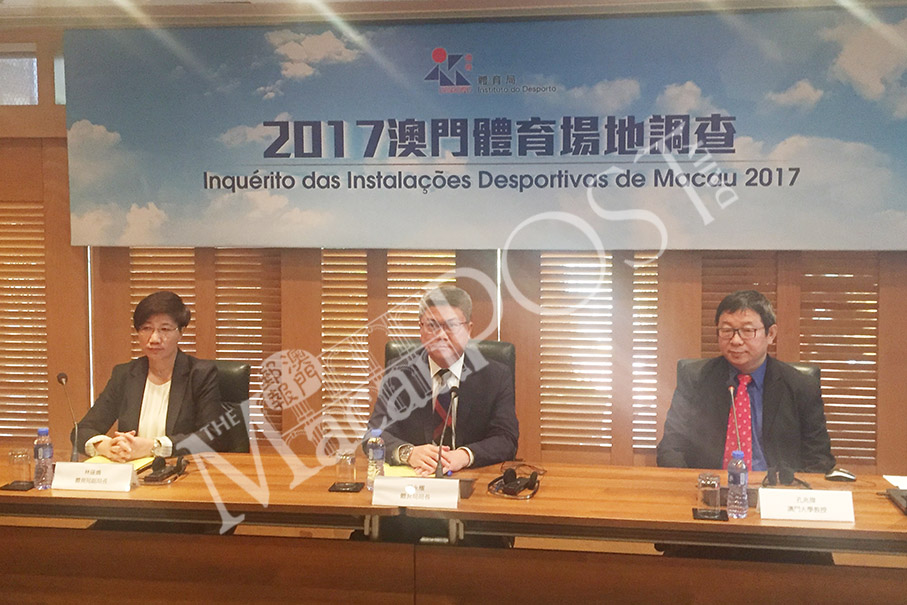Today marks the 3rd Anniversary of the inauguration of the Management Committee of the Guangdong-Macau In-depth Cooperation Zone in Hengqin – one of the most important days on the political calendar of the Macau Special Administrative Region (MSAR), considering that it has elevated Macau’s status within the framework of the “One Country, Two Systems” by adding a novel element to its implementation.
The inauguration ceremony on September 17, 2021 took place about a fortnight after the Central People’s Government had issued a general plan for the development of the 106 km2 zone.
The zone offers both opportunities for and challenges to Macau. In my view, based on what I have read about the matter and experienced myself since my university years, there exists a dialectical relationship between both in general, involving aspects of interdependence, transformation, perception, response, and development.
Challenges create opportunities for modernisation and innovation, while opportunities present new challenges.
Challenges that are grasped in a timely manner and handled appropriately can gradually transform into opportunities.
Both challenges and opportunities are matters of perception. What some may perceive as a challenge, others may regard as an opportunity. To a certain degree, one may say that both are two sides of the same coin.
The crux of the matter is that one needs to act in a pro-active and timely way when responding to challenges with the aim of creating new opportunities. Timing and determination are crucial to get one’s response right.
Development, modernisation and innovation are inconceivable without availing oneself of the dialectical relationship of challenge and opportunity. Of course, this also applies to the future evolution of the Guangdong-Macau In-depth Cooperation Zone.
Hengqin’s development over the quarter of century has been breathtaking.
I visited Hengqin ( 橫琴島) for the first time in the mid-1980s when it was still clearly noticeable that it originally consisted of two isles, Xiao Hengqin (Small Hengqin; known as Ilha de Dom João in Portuguese) and Da Hengqin (Big Hengqin; Ilha da Montanha in Portuguese). When I asked my local friends about the meaning of the island’s name, they told me that, directly translated, it means “horizontal zither.” They were at a loss when I asked them to explain the meaning, merely saying that “perhaps it doesn’t mean anything.” Well, I believe that anything means something, even things that supposedly mean nothing.
Incidentally, even Taipa, not many decades ago, consisted of two isles, also a “big” and a “small” one. Hengqin and Taipa lie adjacent to each other. One may regard Macau’s Taipa and Coloane and Zhuhai’s Hengqin as sister islands, considering their geographic and cultural closeness.
During my first trip to Hengqin four decades ago, the island was well known in Macau for its oyster farms, fisheries and farming. Macau residents went there primarily to savour freshly harvested oysters and other seafood. At that time, one could reach Hengqin by boat only. Now there is the state-of-the art Lotus Flower Bridge linking the two sides. I also remember farmers and fisherfolks from Hengqin coming to Coloane by sampan to sell their fresh produce – including flowers and live chickens – every day. Those were the two islands’ bucolic times not long ago.
The setting up of the Guangdong-Macau In-depth Cooperation Zone in Hengqin has fundamentally upgraded our city’s relationship with the island, which still belongs to Zhuhai City that, by the way, comprises 146 islands and dozens of islets.
Hengqin-Macau ties began to intensify gradually but progressively after Macau’s return to the motherland in 1999 when Macau’s relations with Guangdong Province, Zhuhai in particular, became much closer than before the establishment of the MSAR on December 20, 1999. The relationship strengthened further with the setting-up of the Guangdong-Hong Kong-Macau Greater Bay Area (GBA) in 2017, culminating in the founding of the Guangdong-Macau In-depth Cooperation Zone in 2021, which aims to enhance cooperation between Guangdong and Macau via Hengqin, focusing on economic integration, innovation, modernisation and the development of a novel economic development model within the framework of the “One Country, Two Systems” principle. The in-depth cooperation zone also endeavours to help Macau achieve the long-desired “appropriate” diversification of its “one-dragon” economy.
No doubt, the zone is still in its infancy – three years is a rather short period of time for such a relatively large-scale project, considering Macau’s economic scale and geographic size (boasting one of the world’s highest per capita GDPs and population of around 680,000 living on a mere 33.3 km2, entailing a population density of about 20,400 people per square km – one of the highest in the world).
Hengqin has provided Macau with new “breathing space” for its appropriately diversified development and high-tech industrial modernisation drive. While just around two decades ago only about 3,000 people lived in Hengqin, nowadays over 11,000 people from Macau live and work on the island more than three times the size of Macau. A government-owned company, Macau Urban Renewal Limited headed by seasoned business community leader Peter Lam Kam Seng, has built a residential district on the island – the Macau New Neighbourhood (MNN) – in less than four years, which also includes education, community, sports and health-care facilities and amenities tailor-made for Macau people’s living style. Macau residents aged at least 18 are entitled to buy an MNN flat in the neighbourhood “made for them”.
I would like to reaffirm that I regard Hengqin as both a challenge and an opportunity for Macau’s future development. The cross-boundary development project – which, one may say, is a generous gift from the central authorities in Beijing – can be expected to help Macau realise its long-held desire to become a World Centre for Tourism and Leisure and a business service platform for relations between China and Portuguese-speaking countries, as well as between China and Southeast Asia and Europe.
And Hengqin also poses a challenge for Macau because by taking part in its development it needs to pool all its limited material and human resources, as well as attract more talents from the Chinese mainland and elsewhere, in order to succeed in getting the in-depth cooperation zone off the ground as planned. That’s something completely new for Macau. But the challenge also offers Macau the opportunity to diversify appropriately its economy and play an even more meaningful role in the nation’s modernisation and innovation drive.
I have recently visited the Xiong’an New Area mega-project near Beijing, an example of the nation’s ability to modernise and innovate its economy by building a giant high-tech hub from scratch without depending on foreign labour and funding. Of course, the Hengqin New Area project is much smaller than the one in Xiong’an, they are in a different league, but, relatively speaking, for Macau it poses quite a big challenge – and opportunity.
Personally speaking, I think that the development of Hengqin must been seen as a medium-term project whose development will ultimately require several decades to be fully implemented. But challenges are the right way forward to grasp new opportunities. The joint development of Hengqin by Guangdong and Macau into one of the nation’s top hubs for scientific and technological development, modernisation, innovation, academia, think tanks and business services, just to mention a few, is no easy feat. There will be bumps in the road, but through its involvement in the project Macau will be able to learn a lot for its very own development, such as regarding the successful implementation of its”1+4” strategy, which aims to reinforce Macau’s function as a global centre for integrated tourism and leisure, while facilitating the development of four emerging industries: “Big Health”; modern financial services; high and new technology; and conventions, exhibitions, sports, modern commerce and trade.
A long-time colleague of mine, a local Chinese, and I visited the Macau New Neighbourhood on Sunday where we had a close look at the project’s residential units and also attended Macau Urban Renewal Limited’s Mid-Autumn Festival, which also celebrated the 75th Anniversary of the founding of the People’s Republic of China (PRC) and the 25th Anniversary of the establishment of the MSAR.
We were impressed by the design, layout and quality of construction of the MNN flats, all of which have windows in their bathrooms (which I consider a must for healthy living) and two balconies. Comparatively, they are affordably priced. If I were still young, I would consider buying a flat there.
On the other hand, I am realistic enough to understand that Macau people still need time to get used to their city’s ever closer ties with Hengqin. They are still affected by a psychological barrier. For a long time, Macau was basically separated from the rest of the nation, a situation that only gradually changed some 25 years ago, because of which local residents became used to live very close to everything – their workplaces, shopping, leisure facilities and the homes of relatives and friends. In the wake of Macau’s progressive integration into the Greater Bay Area in general, and Hengqin in particular, more and more locals will have to get used to the fact that commutes and not being able to live “forever” in the same neighbourhood here will be a normal part of their life, like in virtually all other developed economies in the world. Everyone who knows Macau well understands that the concept of “convenience” (“fongbihn” in Cantonese) seems to be local people’s most important aim in life – ideally, everything must be “just around the corner”. But the concept is, of course, relative and subject to development and modernisation. Besides, the concept, which per se is nothing bad, must open up to development as it tends, if taken too strictly, to lead to inertia and lack of initiative and ambition.
Aside from merely paying all-too frequent shopping and leisure trips to Zhuhai – much to the chagrin of local merchants – locals, youngsters especially, must get used to the fact that in order to broaden their horizons and further their careers they should consider living and working not just in Macau but also elsewhere in the Greater Bay Area – such in the Macau New Neighbourhood – for at least a part of their working life.
Overall, I am optimistic that Guangdong and Macau will succeed in their bid to develop Hengqin into one of China’s showcases for modernisation and innovation.
I expect the Hengqin joint development project by Guangdong and Macau to become one of the paragons for China’s modernisation and innovation drive by 2049 – just in time for celebrating the 100th anniversary of the founding of the People’s Republic of China.
Last but not least, I regard the in-depth cooperation zone as a testing ground for the organic integration involving various aspects – administrative, legal, societal, etc. – of the “Two Systems” under the “One Country” principle.
– Harald Brüning








